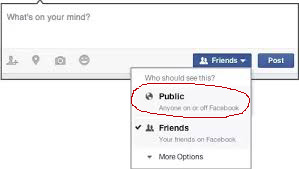There is a huge opportunity to use online reviews to grow your business, and in this post I will give you some tips on how to do exactly that.
How to grow your business with online reviews
This is the second episode in a two-part post about using online reviews to grow your business. The previous post, The Impact of Online Reviews, talked about the huge discrepancy between the way business owners and consumers look at online reviews. Close to 95% of consumers trust and are paying attention to online reviews, and less than half of business owners do the same. Less than a third of business owners are proactively managing their online reviews. The post also discussed some of the reasons why business owners are not leveraging online reviews as much as they could.
We also looked at some studies by Harvard Business School, Berkeley, Microsoft, etc. on how much you can grow your business and sales with online reviews. We saw how a one-point jump in your star rating can have a huge impact on your conversion rate and your sales. We also talked about the difference that one review can make in your average star rating if your rating is on the fence.
Even if you get all your business through referrals (which is good), you may not realize how much your online presence—and reviews in particular—are affecting your referrals. Our last post explained why some people are losing referrals right and left because of online reviews.
In this post, we’ll get into some of the details of how to get reviews, best ways to manage online reviews, as well as some specific tips regarding Yelp.
We’ll get to best practices for growing your reviews, managing your reviews, and responding to reviews in a minute. But because of all the questions I’ve gotten about Yelp, I want to address the question of Yelp first.
Where are my Yelp reviews?
A lot of business owners that I talk to—a lot of my clients—have complained to me about Yelp.
You probably are aware that Yelp has a history of lawsuits filed by business owners, and there’s even a documentary coming out about Yelp. The documentary alleges a “mafia style protection racket” being run by Yelp. Now, I’m not suggesting that this is the case. I do understand, though, the frustration that business owners feel. Yelp has some pretty aggressive sales people, and it’s probably true that they may have said some things to business owners to insinuate that they’ll get favored if they advertise with Yelp. But I believe Yelp is genuinely trying to bring some objectivity to the reviews process. I think their approach is misguided in some ways, but I don’t think it’s malicious.
Differences with Yelp
There are ways to deal with these issues on Yelp, and it’s one of the things we help our clients with. Yelp does a few things that are different from a lot of review sites.
First, Yelp has a policy against asking for reviews. If you say to a customer, “Hey, if you like our service could you leave us a review on Yelp?” you are violating Yelp’s terms of service. If Yelp finds out about that, they reserve the right to delete all your good reviews or to remove your listing from their website. I think this is misguided. There is an inherent bias toward negative reviews, because it’s the people that are upset who are more likely to post a review. I believe we need to regularly ask all our customers for reviews to counter that bias.
Yelp has even gone so far as to say that if you’re asking your customers to review you anywhere—Google, Facebook, TripAdvisor, etc., they can terminate your account or penalize you. To me, this is over the top. Yelp should not be dictating the terms of service for other companies’ websites. But anyway, that’s what they say, although I don’t know how they can police it.
Second, another thing that Yelp does differently is that they are really aggressive about not publishing reviews that may be fake. It’s more of a shoot-first-and-ask-questions-later policy. Yelp admits on their website that 28% of reviews—almost a third of reviews—don’t actually get published. So the business owners that talk to me are really frustrated, because they’ll see a fake review from somebody who’s not a customer get published on Yelp when it shouldn’t be and three or four really positive, very legitimate reviews that don’t get published and aren’t being factored into their star rating. That’s just really frustrating to people.
I don’t believe that this is deliberate or malicious on Yelp’s part. I believe they’re genuinely wanting to filter out fake reviews. But it doesn’t appear that they’re taking an approach that most people would agree with.
Help with Yelp
So one of the things that we’re doing with our clients is getting them Help with Yelp. This is part of our MoxyBoost Guardian review management program. We help our clients learn how to take those positive reviews that have been hidden on Yelp and are not published and get them published. We’ve looked at some of the factors that makes Yelp label a legitimate review as a fake one, and when you change those factors you stand a good chance of getting the good reviews published. A lot of it has to do with whether the user has a fully completed Yelp profile and how much content they’ve contributed to Yelp.
We also help our customers with how to get fake negative reviews removed. You can flag fake reviews if they violate Yelp’s terms of service, and it’s really helpful to point out what term of service is being violated when you do the flagging.
So we help our customers learn how to grow their Yelp presence without paying Yelp’s advertising fees, because that same money would be a hundred times more effective if invested in a good local SEO program or some other more efficient form of advertising.
The point is that there is a way to manage your Yelp reviews, and there are ways to manage all of your reviews across the major review sites.
Best practices for managing online reviews
So, let’s talk about best practices. Here are just a few tips, in no particular order.
 Have a system for asking for reviews.
Have a system for asking for reviews.
Now, I know this is not necessarily easy to do. You really have to stop and think about your process and incorporate this into your process and train your employees; but, have a system. Tools can really help. One of the things we give our customers in our MoxyBoost Guardian program is a feedback page and a mobile app. So, they can put in their customer’s mobile number or email address and click a button and the customer gets an invitation to provide feedback. You just make it part of your process. You train your employees to make it part of their process, and every time you serve a client you say, “Hey, can I send you a request for some feedback?” Then our tool takes any kind of negative feedback and sends it directly to you, and if there’s positive feedback, we invite the customer to provide an online review and give them some direction on where to go to do that—because that’s a challenge for a lot of your customers. Even if they want to leave you a review, they may not know where to go or how to do it. So, having tools is good. But having a system and making it part of your process is also important.
Respond to negative reviews promptly and properly.
If you get a negative review, respond to it promptly and politely. Although it may not feel like it, people are doing you a service by providing feedback. Even if it’s feedback that you don’t want to hear, it’s probably something that you need to hear. And even if it’s not something you need to hear, it is probably something you need to address.
The best way to respond to a negative review is to do it politely. In our MoxyBoost Guardian program, we provide lots of sample responses to our clients, and we even have a service where we respond for our clients right away to any new reviews.
If you take the negative review personally, it’s hard to formulate a good response. But if you respond to the review quickly and well, many times you can get customers to modify their negative review. They were posting a review because they’re upset and they want to be heard. When you respond politely and appropriately, they feel heard. Maybe you’ll be able to address their concerns, and you might change that negative review into a very positive one. At the very least, most review sites allow you to respond publicly, and so anyone who’s looking at that negative review can also see that you are responsive and care about customer service. And they can also see your side of the story.
So respond to negative reviews right away, and respond politely, without getting upset. Or, hire someone to monitor and respond to reviews for you.
Respond to positive reviews.
It’s also good to respond to positive reviews. You don’t have to post a thank you to every positive review that’s put up on Google or Yelp or TripAdvisor or Facebook; you can if you want to. But many review sites also allow you to respond privately. You can actually respond privately to both negative and positive reviews. You can respond privately to positive reviews and say, “Thanks for the feedback. I really appreciate your taking the time to leave this review.” You can also respond publicly, and people who are looking at your online reviews know that you’re paying attention, that you’re engaged with your customers, and that you care. So it’s a really good thing to respond to reviews.
Don’t incentivize reviews.
Don’t pay for reviews. Don’t offer people a coupon. It’s not just that you shouldn’t pay for positive reviews or offer a coupon for a positive review, which violates the terms of service on every review site and can get you in trouble with the government. You also don’t want to incentivize people to leave a review. The reviews should be something objective. If you’re providing an incentive, you’re making it less objective and the FTC has something to say about that. So don’t incentivize people to leave a review.
Don’t create fake reviews, and don’t hire someone to create fake reviews.
Yes, I know probably a few of your competitors have fake reviews created for them, and it’s frustrating to see those not get flagged. If you want to, you can go and flag them, or have a friend of yours flag them as fake reviews. But don’t go create those yourself. It’s just not ethical.
Watch out for guaranteed minimums
Don’t hire someone who is guaranteeing a certain number of reviews or a certain number of positive reviews, because the only way they can guarantee that is to create fake reviews. Avoid any kind of service that is guaranteeing that you’ll get positive reviews, because I can almost guarantee that they’re creating fake reviews to do that. You just don’t want to deal with those people.
Comply with Yelp TOS
Be aware that Yelp penalizes businesses that ask customers for reviews—at all. It’s not just asking for positive reviews. If you’re asking customers to leave a review on Yelp in any way and Yelp finds out, they can penalize you. You can say that you’re on Yelp, and you can say, “Find us on Yelp.” But you may not want to link directly to your Yelp profile. At a minimum, don’t link to your Yelp profile and say, “Leave us a review.” If you do ask customers for reviews and they are Yelp users, tell them to find your business on Yelp and review it.
How to ask for reviews
Let’s talk about how to ask for reviews. This is one of the biggest things that comes up with my clients. They say, “I don’t know how to ask for reviews. It feels awkward. When do I do it? What do I say?”
People want to share
The thing to keep in mind is that people want to share. Asking for reviews may feel awkward, because it feels like we’re asking people for something. But in reality, people love to share their opinions. They love to be heard. A lot of times they just don’t think about it. They don’t think about posting a review, or they don’t know that that opportunity is there. But they love to share their opinions, and they might be quite flattered that you asked. If somebody’s really happy with your service, they want to repay you in some way. If leaving a positive review is something that they can do for you, that will help you out and help out some future customers, they’re generally happy to do that.
Ask in person
The best way to ask for a review is in person. Especially if somebody is saying, “Thank you for your wonderful service,” or telling you how good your service was, you can say, “That’s great to hear. We do our best to take care of people that way. Thank you so much for providing that feedback.” You can then go on to say, “You know, it’s that kind of feedback that can really help other prospective customers feel more confident in choosing us. So if you don’t mind, could you write what you just said in a review on Google (or Facebook or TripAdvisor or Better Business Bureau, or whatever site you want to send them to). That would be really helpful.”
In the tools that we provide our clients in our reviews management program, MoxyBoost Guardian, we make it easy to link to the top sites that you want people to leave reviews on, and you can use our app to share those links with your customers. But you can also do the same thing yourself and help them know where to go. When they let you know how much they appreciate you, you say, “Thanks for the feedback. That kind of feedback can help other potential customers in deciding to work with us. If you’re willing to share it, it would be great if you could share what you said to me in an online review.” If you have an app or some online tools, you can put in their mobile number or their email and the process is automated. Or you can give them a list of your review sites and they can then write the review when they go back home.
Strike up a conversation
When you’re looking for reviews, it reminds you to keep tabs on your customer service. You can strike up a conversation with clients in your office or store and ask them, “How was your experience?” Don’t jump directly to asking for the review, but if they keep the conversation going and you have the sense that they’re open to it, you can ask at the close, “Well, thanks for the feedback. We love sharing that kind of info with potential customers so they can feel more comfortable choosing us. If you’re willing to share it, it would be great if you could share what you said to me in an online review”
Not in your office or store
Here’s another Pro tip: Don’t have people leave reviews while they are in your office or in your store. Google, Yelp, and all the major review sites know when someone is posting from your office. If customers do post from your office, there’s a high likelihood it will get flagged as fake. So, have your clients go home or back to their own office to leave the review.
Ask over the phone
If you don’t have the opportunity to ask the customer in person, you can also ask over the phone. In the same kinds of conversations, especially if somebody’s appreciating your service or if you just concluded your transaction, you can say, “Have we taken care of everything? How was your experience today?” If you have a sense that they are open to it, say, “Hey, if you wouldn’t mind would you share that in an online review?”
Ask via email
You can also ask customers via email. You can send out an email blast to all of your past clients. Or even better, send a personalized email to your client. It’s much better than a bulk email.
You can also incorporate your request for a review into your email templates, and make it part of all your organization-wide emails. You can have something at the bottom of each email that says “Did you like your experience? Leave us a review.”
You can make this part of your service delivery process via purchase receipts, thank you pages, etc.
Or, if you’ve got some kind of review management tools, instead of asking directly for reviews you can say, “Provide your feedback here.” Then the tools will catch the negative feedback, and if the feedback is positive, it will ask the customer for an online review in an automated fashion.
Vendors and partners too
It’s not just customers that you can ask for reviews. You can also ask your vendors or your partners or other people that you’re doing business with. They might be very happy and willing to give you a review.
Review management tools
I don’t know your situation. Maybe you already have a review management program, or maybe you’re not in a position right now to grow your business with online reviews. But I would be very remiss if I didn’t tell you about our programs. We have a reviews management program called MoxyBoost Guardian which costs less than half a cup of coffee a day. But it’s actually not a cost. It’s an investment, one that could have a huge return on investment for you.
With MoxyBoost Guardian, we’re actually monitoring 50-plus different websites for you every single day, letting you know when somebody leaves a review so you can respond. We also have tools that allow you to solicit feedback from customers and direct them to the right places, the places you want them to go to leave an online review.
We have a step up from the MoxyBoost Guardian program called MoxyBoost Alpha Team, where we are actually managing and responding to the reviews on your behalf. If somebody leaves you a review, we’ll go in and make the response, using your voice and interacting with your customers for you.
I highly recommend using a reviews management program like this, because it’s not about what the program costs; it’s about what it’ll cost you not to use it.
How much will it cost you if you have negative reviews you don’t know about?
How much will it cost you if your competitors have much better reviews than yours?
How much will it cost you to accept 20% slower sales growth than you deserve?
Your potential customers are online searching for you every single day, and I really want them to find you.
One quick request from me: If you are a regular listener of our podcast, or if you found this post useful, or if you’ve been a client of ours, I’d like to ask you for a review. If you could go to Google or Yelp or SuperPages or YellowPages or Facebook—whatever your favorite platform is—and leave a review for Cloud Mountain Marketing, I would surely appreciate that.
Also if you’ve enjoyed this post and found it beneficial, pass it on to others. Feel free to forward the email you received, or send this link to somebody else.
To your success!

Podcast: Play in new window | Download
 Here are some statistics that are really important for you and your business. It may sound like I’m just going to throw some numbers at you, but these statistics are really important and could have a big impact on your business.
Here are some statistics that are really important for you and your business. It may sound like I’m just going to throw some numbers at you, but these statistics are really important and could have a big impact on your business.
